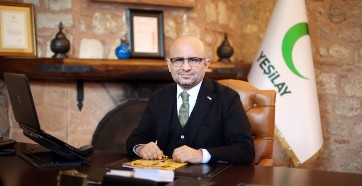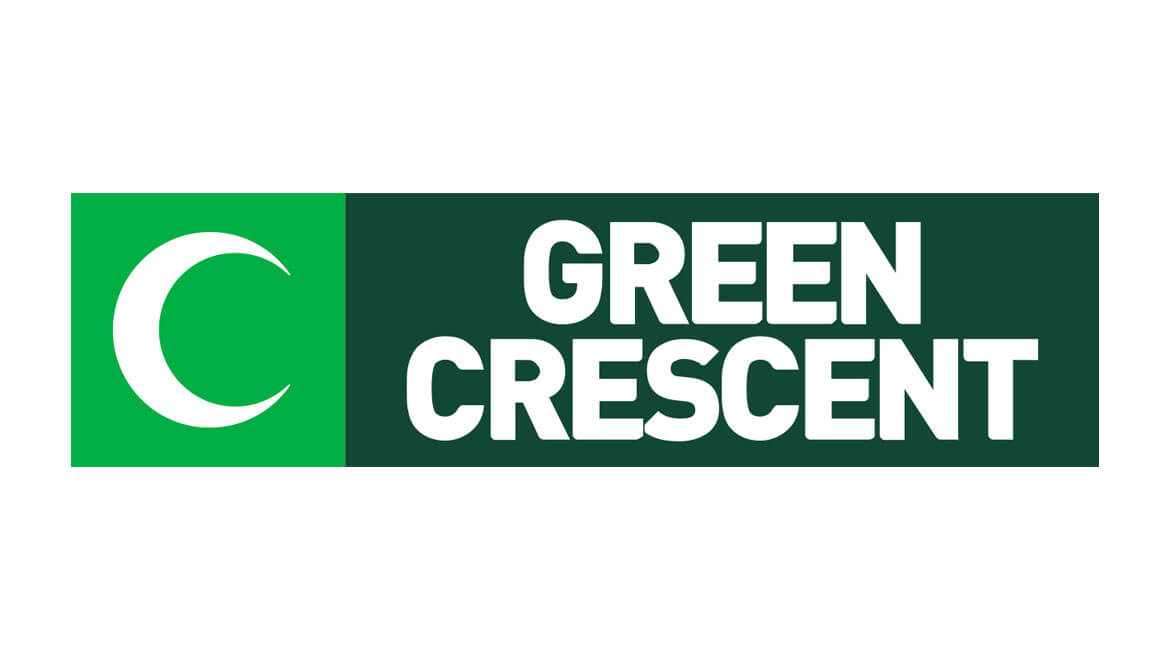
Dear Friends of Green Crescent,
As Green Crescent, we have remained resolute in our efforts t..

Turkish Green Crescent Society, SESRIC and Ministry of Health of Turkey jointly organized the “Knowledge Sharing Workshop on Tobacco Control Policies for the OIC Member States”. The three day program covered the essentials of comprehensive tobacco control policies, and encouraged cooperation and sharing expertise in tobacco-related problems among OIC Member States.
On December 14-16, 2016, the Turkish Green Crescent, along with the Statistical Economic and Social Research and Training Centre for Islamic Countries (SESRIC), and the Turkish Ministry of Health (MoH) organized the “Knowledge Sharing Workshop on Tobacco Control Policies for the OIC Member States”. The Turkish experience constituted the base of the workshop. 40 individuals from 16 countries attended the three-day workshop held at Green Crescent Headquarters. The participants were officials from the Ministries of Health and Ministries of Finance in OIC Member States, who are responsible for evaluating, drafting, enforcing, and implementing tobacco control policies.
The event began with opening remarks by Asst. Prof. Mehmet Akif Seylan, the Vice President of the Turkish Green Crescent Society. Prof. Seylan explained that “Tobacco addiction is a global public health problem that causes 6 million deaths globally each year. On the other hand, it is a preventable problem that causes many health problems from non-communicable diseases to cancer. These facts about tobacco have caused the international community to take action, and under the leadership of the WHO, starting with work in 2003, the Tobacco Control Framework Convention FCTC has been formed. Subsequently, in 2008, MPOWER, which includes the six basic principles of the criteria for the implementation of this contract was developed.”
He continued by expressing that “As of today, 180 countries have signed this agreement, which provides an important framework on a global scale. The FCTC and the MPOWER criteria have guided countries in developing effective policies and reducing consumption. Turkey, which signed the FCTC in 2004, made itself known as the most successful country in terms of FCTC guideline implementation thanks to the efforts by both the state and non-governmental organizations to create a tobacco-free Turkey. As a result, according to the surveys conducted between 2008 and 2012, tobacco use in Turkey decreased from 31.2% to 27.1%.”
During the first two days, there were various presentations explaining the experiences of Turkish institutions regarding tobacco control. The speakers included Mr. Toker Ergüder, the National Professional Officer of the WHO Country Office in Turkey, who explained and discussed the WHO FCTC and MPOWER policies. Mr. Ergüder was followed by Mr. Mazhar Hussain from SESRIC, who discussed tobacco prevalence in OIC member countries. This session included the country interventions on the current situation of implementation of WHO FCTC and MPOWER criteria in these countries. Next, Mr. Mehmet Günal, from the Statistical Institute of Turkey discussed the monitoring tobacco use and prevention policies as well as conducting tobacco use surveys and adapting tobacco questions for surveys into ongoing national surveys. This speech was followed by a presentation from Mrs. Peyman Altan who explained tobacco control policies in Turkey.
Mr. Hasan Şişik and Mrs. Gülsevil Varol from the Tobacco and Alcohol Market Regulatory Authority of Turkey presented to the participants the dangers of tobacco and pictorial health warnings, packaging, labelling, content, and disclosure. Also from the Tobacco and Alcohol Market Regulatory Authority of Turkey, Mr. Caner Uzunoğlu discussed the enforcement of bans on tobacco advertising, promotion and sponsorship within points of sale, advertisement, promotion, sponsorship, authorization wholesale and retail sale.
Mr. Ferhat Ceylan and Mrs. Olcay Gül from the Ministry of Finance of Turkey discussed raising taxes on tobacco and explained tax regulations and tax stamps as well as applied product tracking system including regulations on special consumption taxes and illicit trade of tobacco products. Finally, Mrs. M. P. Tuba Durgut from the Turkish Green Crescent Society discussed guidelines for media campaign strategies and the Green Crescent’s anti-waterpipe campaign.
On the third day, the participants were taken to Tekirdağ, where they visited the Ministry of Health’s ALO 171 smoking cessation hotline, smoking cessation clinic, and also had the opportunity to conduct a field study with an inspection team.
The workshop will be followed by another long term expert training project in which SESRIC, MoH of Turkey and Turkish Green Crescent experts will hold workshops for tobacco experts in selected OIC Member Countries